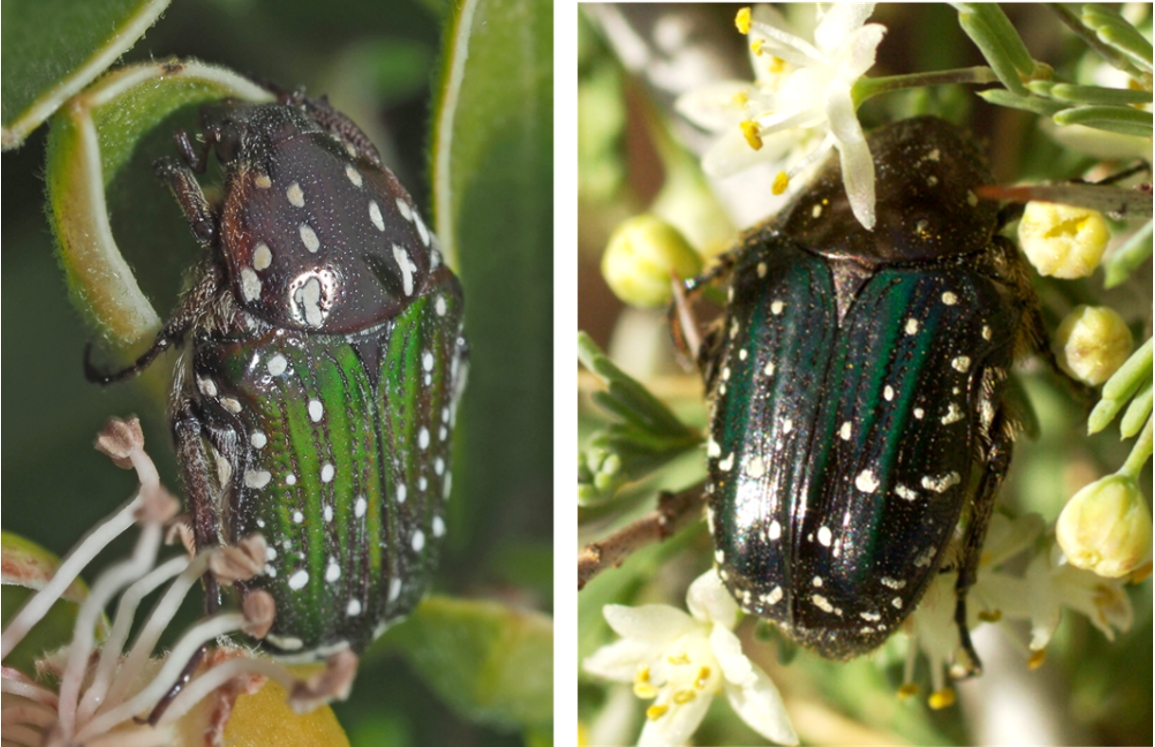New taxa of Leucocelis Burmeister, 1842 from Namibia, and revision of L. (L.) adspersa s.l. (Fabricius, 1801) (Coleoptera: Scarabaeidae, Cetoniinae)
DOI:
https://doi.org/10.13133/2284-4880/1548Keywords:
Fruit chafers, biodiversity, endemic species, Afrotropical Region, southern AfricaAbstract
One new species, with two distinct subspecies, of Leucocelis Burmeister, 1842 is recognized and described from central and northern mountain regions of Namibia, the Erongoberge between Usakos and Omaruru and the Otaviberge above the omonimous town. The nominal subspecies, L. (L.) claveaui claveaui sp. et subsp. nov. has previously been confused with dark navy-blue specimens of the closely related L. (L.) franki Janson, 1888, which is endemic to western Namibia and the South African part of the Gariep Desert. Leucocelis (L.) c. claveaui can easily be separated from the latter species on the basis of background colour and maculation of it dorsal and pygidial habitus, as well as elytral sculpture and aedeagal parameres. The second subspecies, L. (L.) claveaui otavi sp. et subsp. nov., is currently known from a single male specimen collected on the summit of the Otaviberge, at an altitude of about 1900 m. It differs from the nominal subspecies by having a much more extensive white dorsal maculation, a black pygidium and light bluish-green elytral background colour. In the process of analysing the taxonomic relationships of this new species with its closest southern African relatives, it has also emerged that the intraspecific variability of L. (L.) adspersa s.l. (Fabricius, 1801) is actually more complex than previously recognized. As a result, two new subspecies are now included within this taxon, L. (L.) a. orientalis subsp. nov. and L. (L.) a. giannatellii Antoine, 2002 stat. nov., in addition to the two already established, namely L. (L.) a. adspersa and L. (L.) a. umtalina Péringuey, 1907. Further research is needed on the Leucocelis and other Cetoniinae of Namibia, as the country is still badly under-sampled and there are indications that other new or important taxa may be recognised or rediscovered using appropriate field surveys and identification methods.
Downloads

Downloads
Published
How to Cite
Issue
Section
License
Copyright (c) 2023 Renzo Perissinotto

This work is licensed under a Creative Commons Attribution-NonCommercial-ShareAlike 4.0 International License.




